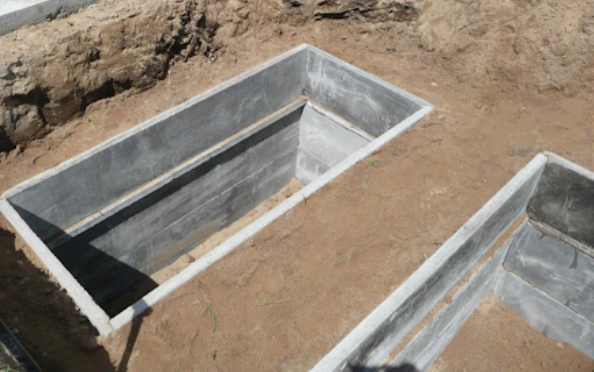Sri Lanka gives up plan to bury Muslim COVID-dead in the Maldives
Permission for burial in concrete graves expected in a few days
By P K. Balachandran
COLOMBO – The Sri Lankan government, which had sought to take the bodies of the Muslim COVID-dead to the Maldives for burial, has given up the idea and is expected to grant permission to bury them in concrete graves in Muslim burial grounds in Sri Lanka. Permission for burial is expected to be granted in the next few days.
Earlie Cabinet spokesman Keheliya Rambukwella said the government had given up the idea of taking the bodies to the Maldives.
Hilmy Ahamed, Vice President of the Muslim Council of Sri Lanka, said in the coming week, perhaps by Tuesday (22) or Wednesday (23), the government was expected to finalize the design of the concrete grave (suggested by Muslim leaders) and the various precautions to be followed in burials.
Way back in April, the government had banned burial of the COVID -dead on the grounds that it would contaminate ground water as the water table in Sri Lanka was too high, ignoring both WHO guidelines and global practices. The government also turned a blind eye to the fact that even in Holland and the Maldives, where the water tables are high, burials are accepted as a means of disposing the COVID-dead, and disregarded the pleas of the Muslims, for who cremation is ‘haram’.
Muslim leaders proposed Muslims dying of COVID be wrapped in body bags and buried in concrete graves with one and a half feet of soil in them. They also suggested a chemical could be sprayed on the body bags to speed up the decomposition process of the bodies. They also submitted a design for the concrete grave.
The government appeared to be open to the suggestion but dragged its feet on making a decision. Frustrated, some leading Muslims appealed to foreign leaders like Mohammad Nasheed, the Speaker of the Maldivian Parliament, Pakistan Prime Minister Imran Khan, the Malaysian Prime Minister and some Muslim leaders in Tamil Nadu, to allow Sri Lankan Muslim bodies to be buried on their soil. The leaders were open to the suggestion but wanted the deal to be a government to government one.
It was at this stage that Mohammad Nasheed sounded the Sri Lankan President Gotabaya Rajapaksa about the idea of sending the bodies to the Maldives,following which the Sri Lankan President made a formal request to his Maldivian counterpart Ibrahim Solih. Reportedly Solih had responded favourably and announced that he was talking to stakeholders in the Maldives about the logistics of the exercise.
Even as these diplomatic exchanges were taking place, the Muslims’ cause was being taken up by Sri Lankans of other faiths as well. They particularly protested against the cremation of the 20-day old baby, Shykh. People tied white cloth on the gates and iron railings of the crematorium in Colombo even though the police kept removing them. There was an all-round condemnation of the government’s insistence on cremating all bodies.
The government kept talking about an “expert committee” which had said burying COVID-19 bodies would pollute the soil and ground water. But the composition of the “expert committee” was never made known. Muslims and other human rights workers however, put out statements and videos featuring qualified and internationally known virologists to prove that the government’s contentions were baseless.
Prof. Malik Peiris of the University of Hong Kong said: “If the body is wrapped in water-resistant material and chemicals are used to expedite the process of decay, the possibility of even a residual amount of the COVID-19 infection seeping through the soil and contaminating water is an entirely non-scientific argument. That is a major reason why the World Health Organization and many countries in the world have no problem with burials.”
One of the factors making the government think afresh on the burial issue is its anxiety to hold the long pending elections to the nine Provincial Councils for which the support of the Muslims would be necessary. Earlier, the ruling Sri Lanka Podujana Peramuna (SLPP) had to seek the votes of Muslim Members of Parliament to ensure the 2/3rds majority required to pass the 20th Constitutional Amendment (20A).
The Rajapaksa government is also worried about Sri Lanka’s case coming up at the March 2021 session of the UN Human Rights Council (UNHRC). Although the government has dissociated itself from an earlier resolution which the previous regime co-sponsored, it has to face resolutions sponsored by other countries. And although the US is not in the UNHRC, its proxies will put forward a resolution in March slamming Sri Lanka on various war time accountability and ethnic reconciliation issues. The Muslim burial issues will be on the top of the litany of complaints this time. Hence the urgency to solve the burial problem and bring the curtains down on the controversy.
-P K. Balachandran is a senior Colombo-based journalist who in the past two decades, has reported for The Hindustan Times, The New Indian Express and the Economist


